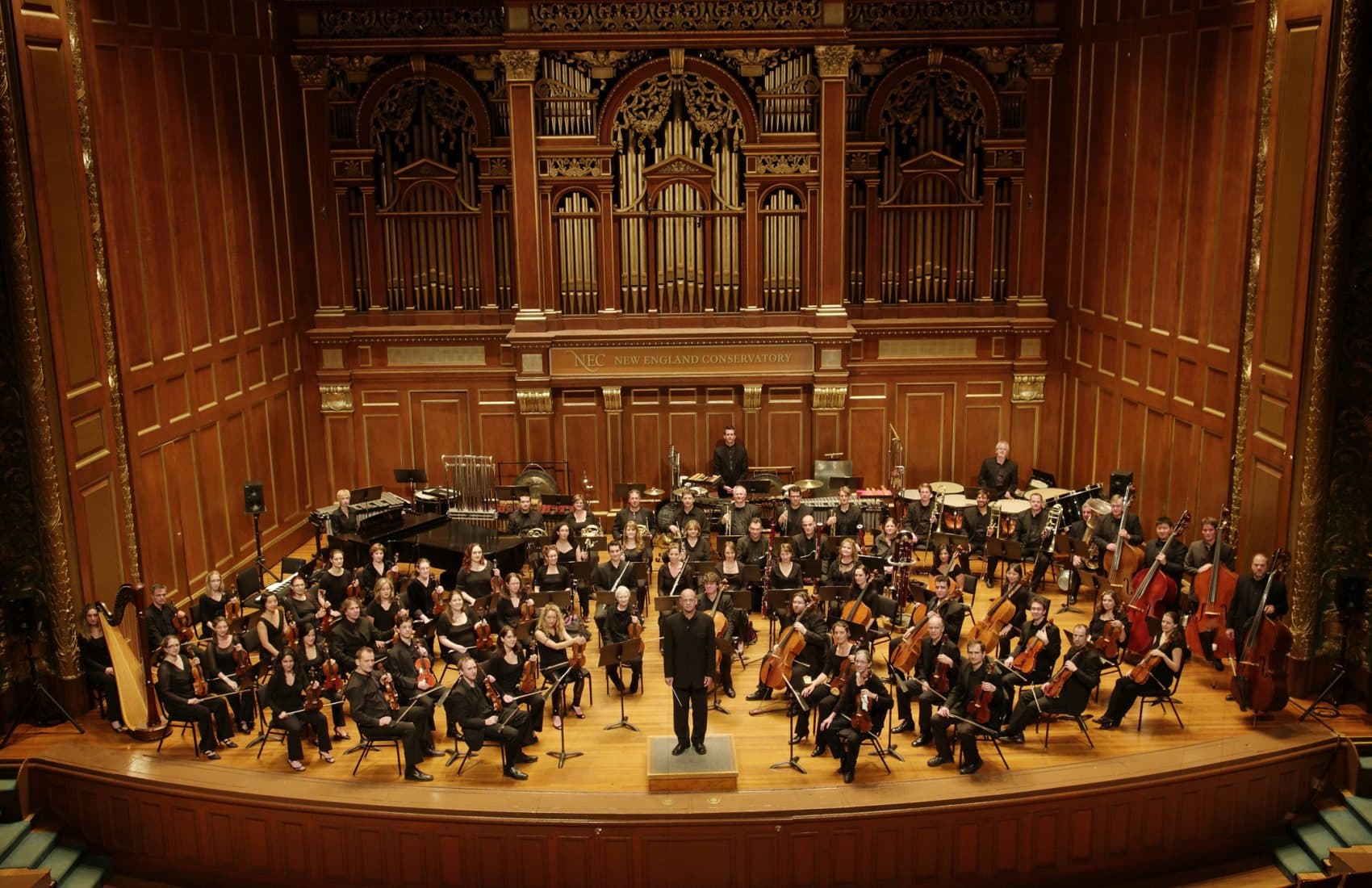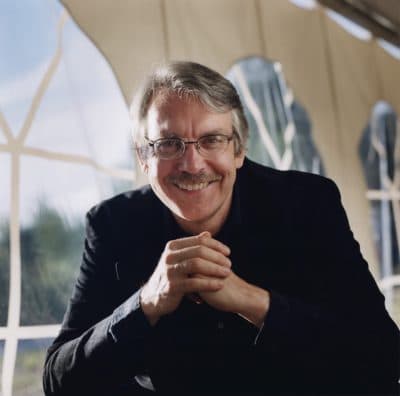Advertisement
Boston Modern Orchestra Project Spans The 'Generations' With Its Season Opener

There are many moderns for the Boston Modern Orchestra Project. BMOP opens its 22nd season this Sunday, Oct. 29, at Jordan Hall with "Generations" — works by contemporary composers William Schuman (born 1910), John Harbison (1938), David Sanford (1963) and Matthew Aucoin (1990). In one afternoon, BMOP will explore nearly a century’s worth of modernity.
It’s the hallmark of new music groups to restlessly examine the latest ideas. For BMOP, decades into a performance life, and with five dozen recordings under its belt on its own BMOP/sound label, “the latest” spans a breadth of styles and ideas.

Soloists Matt Haimovitz, performing Sanford’s “Scherzo Grosso” for cello and orchestra, and Conor Hanick, soloing in Aucoin’s “Concerto for Piano and Orchestra,” will join conductor Gil Rose and the ensemble. Harbison’s “Diotima,” composed in 1976, and Schuman’s "Judith, Choreographic Poem" — written for Martha Graham -- round out the program.
Schuman’s “Judith” was commissioned by the Louisville Philharmonic Society (now named Louisville Orchestra), and was conceived as a "concerto" for dancer — Graham — and orchestra. The piece tells the Biblical story of Judith, and was first performed, with Graham, in 1950. The music stands alone as an orchestral work.
Here’s the sound of the presto movement of “Judith,” from the Louisville Orchestra under Robert Whitney:
Harbison’s “Diotima” continues a BMOP tradition of performing the great American composer’s works. In fact, the very first recording on the group’s BMOP/sound label was Harbison’s ballet score "Ulysses," in 2008.
Harbison is one of the most decorated composers alive: a MacArthur Foundation grant, a Pulitzer Prize, a Heinz Award. He has a Grammy nomination. He’s been commissioned by some of the world great orchestras — the Boston Symphony, multiple times; the Metropolitan Opera (“The Great Gatsby”). He’s been in residence at Tanglewood, and with many orchestras.

His work is sometimes thorny, angular and rhythmically dense; other times, sweet as the sun.
“Diotima” veers toward the latter mood. Diotima was Plato’s fanciful instructor in the art of love — or more precisely, the appreciation of beauty. Harbison was commissioned by the Koussevitzky Music Foundation, and his setting calls for large orchestra. He was particularly influenced by reading Hölderlin’s poem on the subject, although his setting is entirely instrumental. The BSO premiered the work in 1977, although there are no recordings available.
Here’s Harbison talking about musical inspirations, with some of his music as illustration:
Sanford’s “Scherzo Grosso” is a quasi-improvisational work for cello and big band. Matt Haimovitz, the cellist here, is no stranger to improvisation, or to musical adventure. Or just regular adventure, for that matter.
Haimovitz loaded up his van a few years ago, touring the country, roadhouse by country pub, performing solo cello on spec for a variety of unsuspecting listeners. That sort of entrepreneurship defines his artistic life, and informs his approach.
Sanford’s work, performed here (first movement only) by Haimovitz and the Pittsburgh Collective, weaves its way between classical ideas and jazz. The movement in this clip, recorded on Oxingale Records, was performed live at New York City’s Knitting Factory in 2007:
The youngest of this set of contemporary composers, Aucoin, has already had a great impact on contemporary music. Artist-in-residence now at the the Los Angeles Opera, the Medfield native has had commissions from the Lyric Opera of Chicago, Carnegie Hall, the Metropolitan Opera and the American Repertory Theater — his opera "Crossing," recently revived at the Brooklyn Academy of Music.
The piano concerto on this program was commissioned by the Alabama Symphony, and premiered by that orchestra and Conor Hanick in October of last year. The concerto has three movements, which Aucoin calls in this clip, “chaos, a warm bath, and then an escape”:
Hanick is just one of a number of virtuosic soloists who have paired with Aucoin’s music, among them violinist Keir GoGwilt, and countertenor Anthony Roth Costanzo. The performance serves as a tasting of Hanick’s playing, in advance of his week-long residency in December at the A.R.T. in Cambridge.
The Boston Modern Orchestra Project, with Gil Rose conducting, performs music of William Schuman, John Harbison, David Sanford and Matthew Aucoin on Sunday, Oct. 29, at 3 p.m. at at Jordan Hall in Boston.



